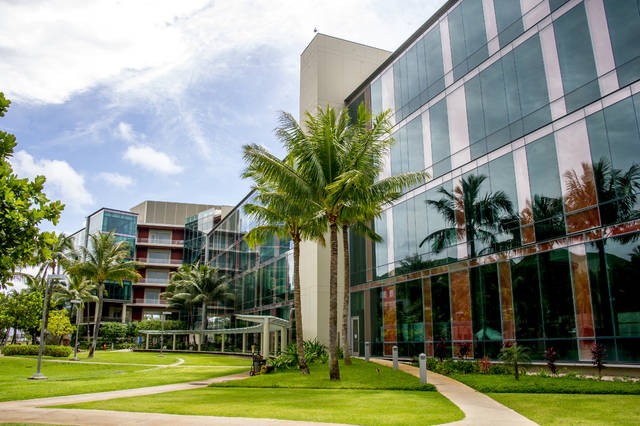University of Hawaii gets $6 million in funding

CRAIG T. KOJIMA / 2016
The UH Cancer Center’s Hawaii Tumor Registry is a founding member of the Surveillance, Epidemiology and End Results Program, the nation’s cancer surveillance and reporting system.
The Department of Health and Human Services will award nearly $6 million to the University of Hawaii, including $1.8 million for the Cancer Center’s Hawaii Tumor Registry, U.S. Sen. Brian Schatz announced today.
As part of the contract, UH will also be able to apply for the funding every year for the next 10 years, for a total of nearly $18 million.
“The first step to beating cancer is to understand the disease, and that’s exactly what the Hawaii Tumor Registry allows us to do,” said Schatz, a member of the Senate Appropriations Committee, in a news release. “With this funding, our state will have the resources we need to collect data — including information about how cancer affects minorities — to help researchers, doctors and others fight for a cure.”
The Hawaii Tumor Opens in a new tabRegistry Opens in a new tab is a founding member of the Surveillance, Epidemiology and End Results Program Opens in a new tab(SEER) Opens in a new tab, the nation’s cancer surveillance and reporting system.
It collects detailed information on more than 8,400 new cases of cancer diagnosed annually in the state, as well as follow-up and survival data on diagnosed Hawaii patients. Currently, its database contains more than 248,137 cases that were diagnosed from 1960 to 2014, according to the UH Cancer Center. It contains more cancer cases of Native Hawaiians than any other registry nationwide, in addition to sizable numbers of other ethnic groups in Hawaii.
This racially-diverse and unique population resource has been invaluable in demonstrating ethnic variations in cancer incidence and survival, and resulted in numerous projects and peer-reviewed publications.
Don't miss out on what's happening!
Stay in touch with breaking news, as it happens, conveniently in your email inbox. It's FREE!
In addition to the cancer research funding, HHS will award UH Manoa about $4 million for the Hawaii Statewide Research and Education Partnership, which offers biomedical research training and education.
“There’s no question that Hawaii has the potential to be at the center of biomedical research and biotechnology,” Schatz said. “This funding will help us fulfill that potential by investing in our best resource — our students.”



